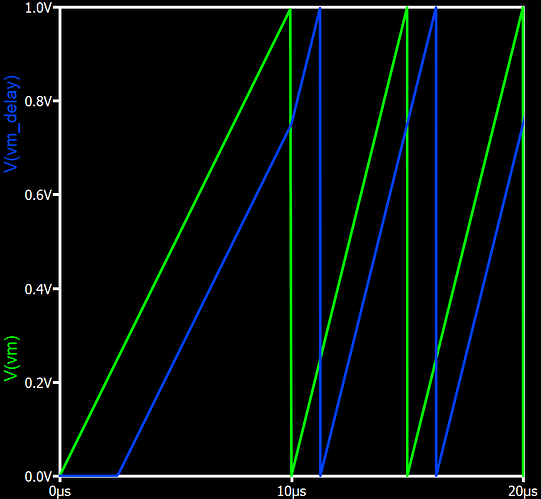Hi, Ermanno.
Well, I was trying to respond with minimal changes to mosfet’s code so I didn’t simplify the code or change it to match my “style”…
You use static_cast which isn’t strictly necessary if you change the passed type from “void** opaque” to “stateStr** opaque”.
Personaly, I also move the instance pointer initialization above the one-time initialization code (so that the pointer can be used inside the one-time initialization code). Then add the instance pointer to the *opaque initialization. My version of your sample looks like this (if I didn’t screw it up; long day, working on fumes here):
struct stateStr{
bool clk_state;
stateStr(){
clk_state = false;
}
};
extern "C" __declspec(dllexport) void dac(stateStr **opaque, double t, union uData *data)
{
//inputs and outputs
...
stateStr* instP = *opaque;
// Only once: call constructor
if(!stateStr)
{
instP = *opaque = new stateStr();
}
//Do stuff with instP
...
}
Note: I also always name the per-instance struct “InstData” and the pointer pInst. Just my style choice. Consistency has saved a few of my toes. But, you do you.
As for adding Delete(), you don’t need the “struct” keyword in the function signature and, because the instance was allocated with “new”, I’d release with “delete”. (IIRC free() is technically allowed but sort of bad style.)
Do you need to add Destroy()? Technically, Destroy() is called for each instance at the end of each simulation step. If there are multiple steps, each step calls the evaluation function with null **opaque and you allocate new per-instance space. The old instance heap space isn’t freed if you don’t include Destroy(). All allocated space does eventually get freed when the simulation terminates. But you leak memory until then.
Your example doesn’t allocate much per-instance memory so it’s rather inconsequential. On the other hand, you might eventually do something more complicated that allocates more memory, opens files that need to be freed/closed in a destructor, etc. If you don’t call delete, destructors defined in the per-instance struct don’t get called.
Bottom line: I’d add Destroy() to ensure that future code revisions don’t introduce issues.
So that’s my two cents worth. Hope it helps.
–robert




